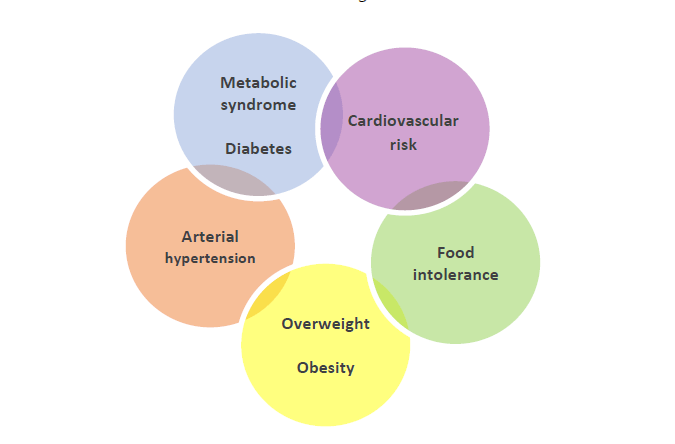
GeneXVitae is a simple, accurate and comprehensive genetic study that allows to establish a personalized nutritional action plan
Currently, chronic noncommunicable diseases such as cardiovascular disease, obesity, cancer and diabetes are responsible of 35 million deaths per year worldwide. In Europe, these diseases accumulate for 70% of all deaths, and it is estimated that they will increase up to 80% by 2030.
People do not have the same risk of suffering from these diseases and, therefore, we react dissimilar to a bad diet. Humans are 99.9% genetically identical while the variation in the remaining 0.1% is responsible for the existence of phenotypical differences: hair color, skin color, weight, risk of suffering from certain diseases…
Nutrition is a key factor in complex diseases development . Therefore, nutrigenetics and nutrigenomics are becoming increasingly important as prevention and treatment tools.
Nutrigenetics studies the response of each individual to a specific diet, that depends, mainly, on its individual genetic variation. The discovery of gene-nutrient interactions gives scientific support to personalized nutritional recommendations. The aim of this personal recommendations is to prevent diseases, optimize treatments and, ultimately, improve the quality of life.
WHAT DO WE ANALYZE?
In this genetic study, DNA extracted from blood or saliva samples is analyzed in order to study individual genetic variation in 107 genetic variants of 75 loci.
The variants included in the study have been associated with specific nutritional requirements. Also with sensitivity to certain components of the diet, increased risk of developing complex diseases (such as hypertension, diabetes, cardiovascular disease or hypercholesterolemia) and the effectiveness of certain pharmacological treatments.
In addition, it includes a detailed immunological study of IgG-mediated allergies and intolerances on the 46 most prominent foods against which the patient could have some intolerance.
All this information is reflected in the following areas:

 METHODOLOGY
METHODOLOGY
Genotyping is performed using a DNA microchip on the Illumina Human Omni Express BeadChip processor. This microarray platform is designed to provide high sample throughput and optimal genetic analysis.
Identified associations between genes and the body’s response to food intake or the genetic risk that predisposes to different diseases are supported by validated scientific studies.
WHAT ARE THE OBJETIVES OF THIS GENETIC TEST?
On the other hand, the study of food intolerances is carried out using the semi-quantitative ELISA technique FD Professional.
With an innovative approach to personalized medicine, it provides:
1. Global and integrated vision of the genetic profile of each patient.
2. Practical and simple genetic information that has an impact on the patient’s daily life.
3. Detailed action plan whose designed is based on the individual genetic profile. These recommendations are useful to avoid unnecessary nutritional restrictions and ir allows for the elaboration of feeding action plans that are adapted to the metabolism of each individual, thus achievement facilitation of long-term objectives.
| This nutrigenetic test only needs to be done once in a lifetime and the results obtained are exclusive for each individual. | Results of the test can´t be used for diagnostic purposes. However, the findings obtained allow the elaboration of an action plan that is translated into recommendations | It has been specially designed to be used by professionals in the field of nutrition. These professionals are the ones who have the demonstrated ability to guide the patient according to the peculiarities of each one, that is, according to their phenotype. |

A correct feeding pattern may balance a genotype with tendencies to prevalent diseases!